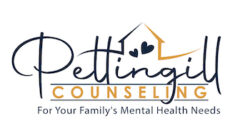Understanding Trauma Counseling: A Path to Healing
Trauma can profoundly impact an individual’s mental, emotional, and physical well-being. Trauma counseling, also known as trauma-informed therapy, provides a safe space for individuals to process and heal from traumatic experiences. This article explores what trauma counseling entails, its methods, benefits, and when to seek help.
What is Trauma Counseling?
Trauma counseling is a specialized form of therapy that focuses on helping individuals who have experienced traumatic events. These events may include physical or emotional abuse, accidents, natural disasters, combat, or the loss of a loved one. The goal of trauma counseling is to help individuals understand their experiences, process their emotions, and develop coping strategies to navigate the aftermath of trauma.
Key Components of Trauma Counseling
- Safety and Trust: Creating a safe therapeutic environment is crucial. Counselors work to establish trust and ensure that clients feel comfortable sharing their experiences without fear of judgment.
- Understanding Trauma Responses: Counselors educate clients about common trauma responses, including anxiety, depression, dissociation, and anger. Understanding these responses can help individuals normalize their feelings and reactions.
- Processing the Trauma: Through various therapeutic techniques, clients are encouraged to process their traumatic experiences. This may involve discussing the event, exploring emotions, and identifying how the trauma has impacted their lives.
- Coping Strategies: Counselors teach practical coping mechanisms to help clients manage symptoms and stress. These strategies may include mindfulness techniques, breathing exercises, and grounding exercises.
- Reintegration: The final phase often focuses on reintegrating the individual into their daily life, helping them develop a sense of normalcy and control. This may involve setting goals and rebuilding relationships.
Methods Used in Trauma Counseling
- Cognitive-Behavioral Therapy (CBT): CBT helps individuals identify and change negative thought patterns and behaviors associated with trauma. It is effective in addressing symptoms of anxiety and depression.
- Eye Movement Desensitization and Reprocessing (EMDR): EMDR is a specialized therapy that helps clients process and integrate traumatic memories using guided eye movements or other forms of bilateral stimulation.
- Somatic Experiencing: This approach focuses on the body’s physical responses to trauma. It helps clients release stored tension and restore a sense of safety and control over their bodies.
- Narrative Therapy: In narrative therapy, clients are encouraged to tell their stories. This process helps them reframe their experiences and find meaning in their trauma.
- Mindfulness and Relaxation Techniques: These practices help clients stay grounded in the present moment and reduce symptoms of anxiety and stress.
Benefits of Trauma Counseling
- Emotional Healing: Trauma counseling provides a safe space for individuals to process and heal from their experiences, reducing emotional pain and distress.
- Improved Coping Skills: Clients learn effective coping strategies to manage symptoms, enhancing their resilience and ability to navigate challenges.
- Better Relationships: As individuals work through their trauma, they often experience improved communication and relationships with others, fostering healthier connections.
- Enhanced Self-Awareness: Counseling promotes self-reflection and understanding, helping clients recognize their triggers and responses.
- Restored Sense of Control: Through the therapeutic process, clients often regain a sense of agency and control over their lives, enabling them to move forward positively.
When to Seek Trauma Counseling
Consider seeking trauma counseling if you or someone you know:
- Is experiencing persistent symptoms of anxiety, depression, or PTSD following a traumatic event.
- Struggles with emotional regulation or experiences frequent mood swings.
- Has difficulty forming or maintaining relationships.
- Is engaged in self-destructive behaviors, such as substance abuse or self-harm.
- Feels overwhelmed by memories or reminders of the trauma.
Conclusion
Trauma counseling is a vital resource for individuals seeking to heal from the effects of trauma. By providing a safe and supportive environment, trauma counseling empowers individuals to process their experiences, develop coping strategies, and rebuild their lives. If you or someone you care about is struggling with the aftermath of trauma, reaching out to a qualified trauma counselor can be a crucial step toward recovery and emotional well-being.

